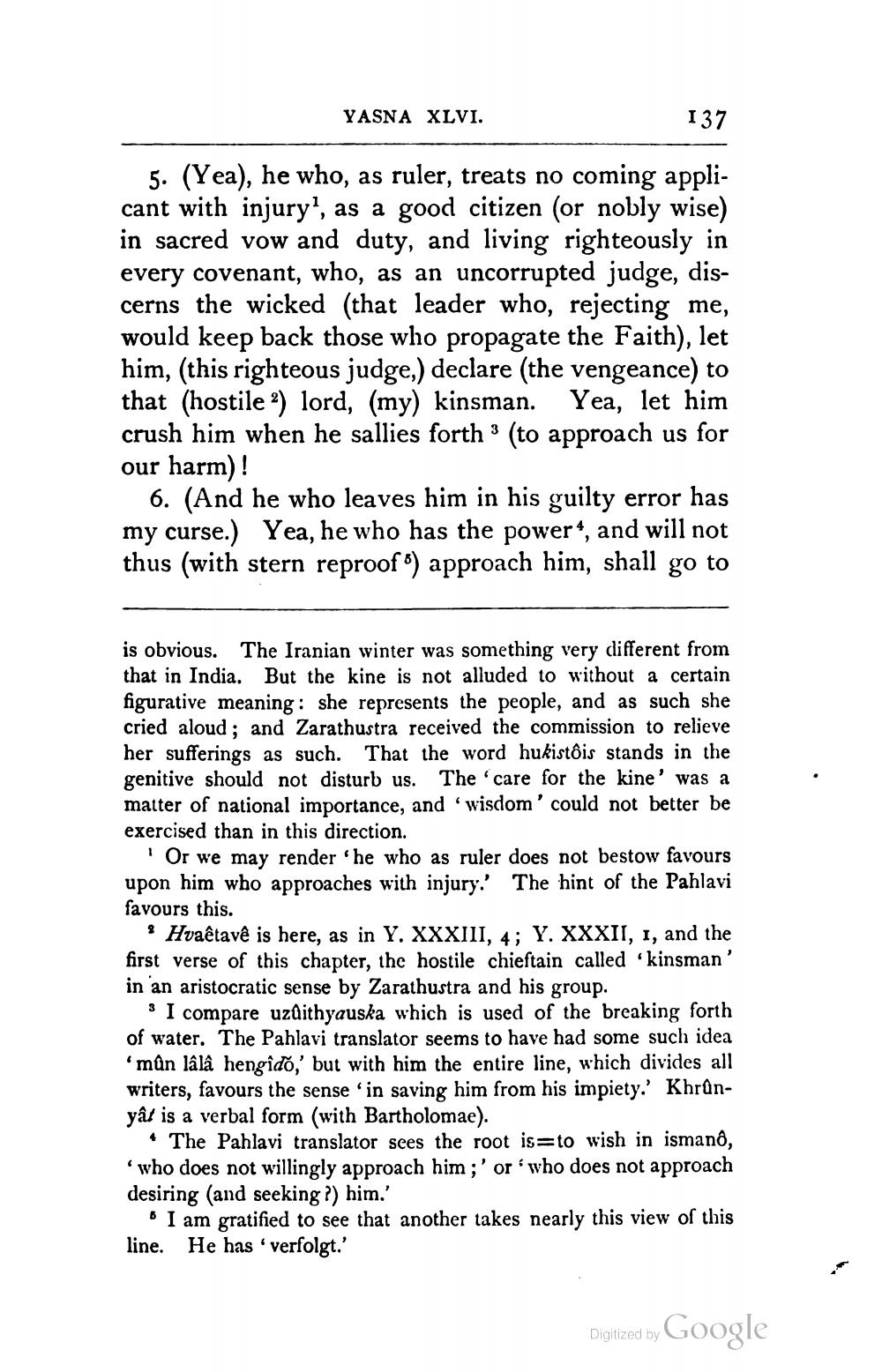________________
YASNA XLVI.
137
5. (Yea), he who, as ruler, treats no coming applicant with injury', as a good citizen (or nobly wise) in sacred vow and duty, and living righteously in every covenant, who, as an uncorrupted judge, discerns the wicked (that leader who, rejecting me, would keep back those who propagate the Faith), let him, (this righteous judge,) declare (the vengeance) to that (hostile 2) lord, (my) kinsman. Yea, let him crush him when he sallies forth 3 (to approach us for our harm)!
6. (And he who leaves him in his guilty error has my curse.) Yea, he who has the power, and will not thus (with stern reproof 5) approach him, shall go to
is obvious. The Iranian winter was something very different from that in India. But the kine is not alluded to without a certain figurative meaning: she represents the people, and as such she cried aloud; and Zarathustra received the commission to relieve her sufferings as such. That the word hukistôis stands in the genitive should not disturb us. The 'care for the kine' was a matter of national importance, and wisdom'could not better be exercised than in this direction.
Or we may render 'he who as ruler does not bestow favours upon him who approaches with injury.' The hint of the Pahlavi favours this.
? Hvaêta vê is here, as in Y. XXXIII, 4; Y. XXXII, 1, and the first verse of this chapter, the hostile chieftain called 'kinsman' in an aristocratic sense by Zarathustra and his group.
I compare uzdithyauska which is used of the breaking forth of water. The Pahlavi translator seems to have had some such idea mûn lâlâ hengido,' but with him the entire line, which divides all writers, favours the sense 'in saving him from his impiety.' Khrûnyât is a verbal form (with Bartholomae).
• The Pahlavi translator sees the root is=to wish in ismano, who does not willingly approach him ;' or 'who does not approach desiring (and seeking ?) him.'
I am gratified to see that another takes nearly this view of this line. He has verfolgt.'
Digitized by
Digitized by Google




